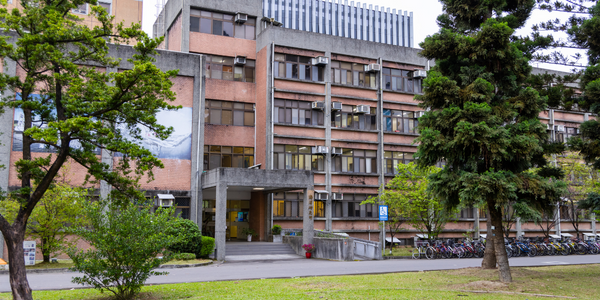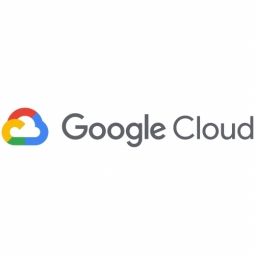Technology Category
- Analytics & Modeling - Computer Vision Software
- Platform as a Service (PaaS) - Application Development Platforms
Applicable Industries
- Buildings
- Cement
Applicable Functions
- Maintenance
- Procurement
Use Cases
- Construction Management
- Time Sensitive Networking
Services
- Cloud Planning, Design & Implementation Services
- System Integration
About The Customer
99.co Group is a property technology business founded in 2014, operating in Singapore and Indonesia. The company aims to help people discover homes that suit their lifestyle needs and aspirations by improving the property search experience using technology. It strives to make the process more reliable, easy, and trustworthy for its customers. The company differentiates itself by staying away from the conventional 'pay-to-list' model, whereby brokers can pay to get more visibility for their properties. Instead, listings on 99.co are classified based on their quality. The company has 20 million monthly active users and is focused on growing its talent pool of skilled engineers, specifically DevOps and infrastructure engineers.
The Challenge
99.co Group, a property technology business operating in Singapore and Indonesia, was faced with the challenge of improving the property search experience for its 20 million monthly active users. The company wanted to redesign the user experience in the renting and buying journey through powerful search, layered with non-transactional data dimensions such as travel time, point of interest, and other attributes. The company also wanted to differentiate itself by classifying listings based on their quality rather than the conventional 'pay-to-list' model. Another challenge was the need to revamp the infrastructure when the group acquired Rumah123 in Indonesia. The original technology stack was hosted from servers in Australia, which affected the platform's performance. The company also aimed to attract a strong talent pool of engineers and scale up its operations to keep up with the fast-growing number of daily users.
The Solution
99.co turned to Google Cloud to enhance its user experience and expand into new markets. The company moved the consumer-facing side of the workload to Google Cloud, to be hosted locally in Indonesia, reducing latency in load time by 50%. The company also used managed databases to attract engineers, as it takes away the need for maintenance, allowing them more time to experiment and innovate new features. To scale up its operations, 99.co moved to BigQuery, which democratized the way employees access data, allowing different engineers to run the data they need in parallel. BigQuery also acted as the organization’s go-to managed database service, with the load managed by Cloud SQL. The company also used Vision AI to automatically categorize the photos taken by agents directly on its platform, saving time for agents. Lastly, the 99.co team started experimenting with Cloud Build to speed up its internal processes to accommodate the fast-growing business.
Operational Impact
Quantitative Benefit

Case Study missing?
Start adding your own!
Register with your work email and create a new case study profile for your business.
Related Case Studies.

Case Study
System 800xA at Indian Cement Plants
Chettinad Cement recognized that further efficiencies could be achieved in its cement manufacturing process. It looked to investing in comprehensive operational and control technologies to manage and derive productivity and energy efficiency gains from the assets on Line 2, their second plant in India.

Case Study
Energy Saving & Power Monitoring System
Recently a university in Taiwan was experiencing dramatic power usage increases due to its growing number of campus buildings and students. Aiming to analyze their power consumption and increase their power efficiency across 52 buildings, the university wanted to build a power management system utilizing web-based hardware and software. With these goals in mind, they contacted Advantech to help them develop their system and provide them with the means to save energy in the years to come.

Case Study
Intelligent Building Automation System and Energy Saving Solution
One of the most difficult problems facing the world is conserving energy in buildings. However, it is not easy to have a cost-effective solution to reduce energy usage in a building. One solution for saving energy is to implement an intelligent building automation system (BAS) which can be controlled according to its schedule. In Indonesia a large university with a five floor building and 22 classrooms wanted to save the amount of energy being used.

Case Study
Powering Smart Home Automation solutions with IoT for Energy conservation
Many industry leaders that offer Smart Energy Management products & solutions face challenges including:How to build a scalable platform that can automatically scale-up to on-board ‘n’ number of Smart home devicesData security, solution availability, and reliability are the other critical factors to deal withHow to create a robust common IoT platform that handles any kind of smart devicesHow to enable data management capabilities that would help in intelligent decision-making

Case Study
Protecting a Stadium from Hazardous Materials Using IoT2cell's Mobility Platform
There was a need for higher security at the AT&T Stadium during the NFL draft. There was a need to ensure that nuclear radiation material was not smuggled inside the stadium. Hazmat materials could often be missed in a standard checkpoint when gaining entry into a stadium.








